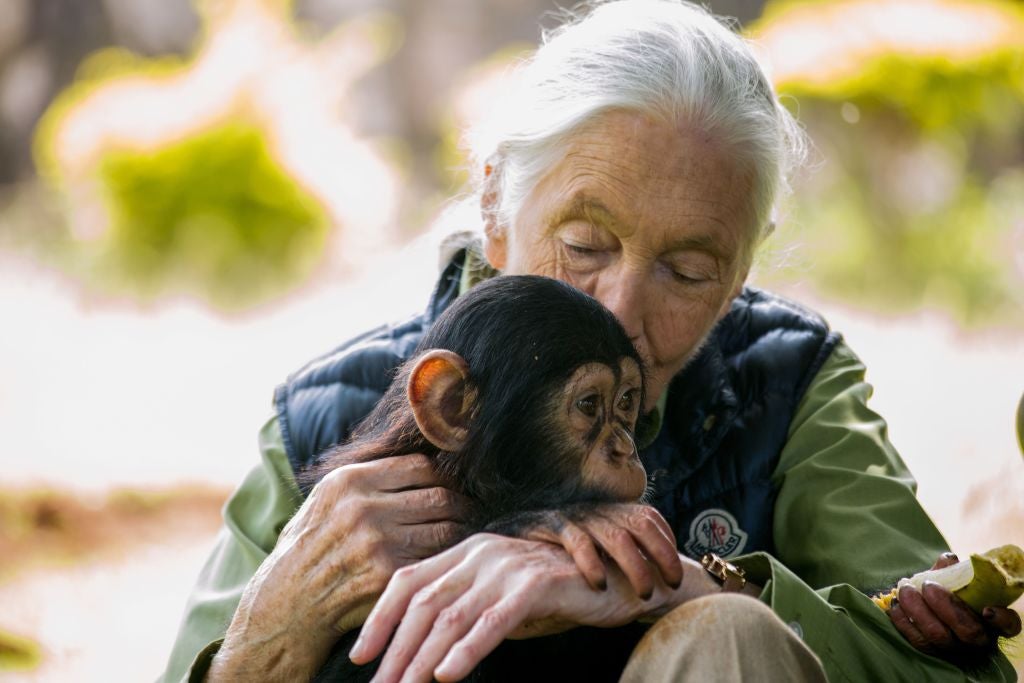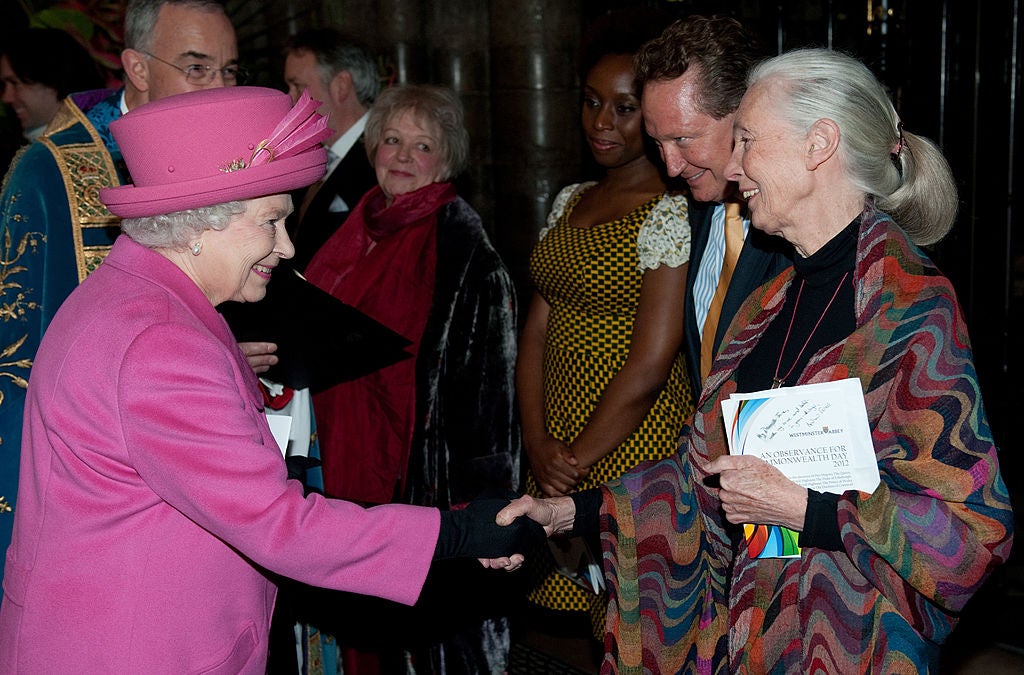Although she turned 90 in April this year, Dr Jane Goodall’s activities show no signs of slowing down.
Considered the world’s foremost chimpanzee expert, this renowned zoologist, primatologist and anthropologist still travels almost daily, year-round, promoting the Jane Goodall Institute and raising funds for environmental conservation.
Born in Hampstead, north London, Goodall stays with her sister when she returns to the UK, and when she’s not there she tours the world, giving talks and bouncing from hotel to hotel.
In an interview last year, when she was 89, Goodall said the world had wasted an opportunity during the pandemic to embrace nature and protect the environment, but she remains hopeful that the younger generation, who make up many of her supporters, can make a difference while there is still time.

Goodall first visited Africa in 1957, staying on a friend’s farm. She was already fond of animals of all kinds, having read “Dolittle” as a child, a novel about a man who could talk to animals, and having become friends with a stuffed chimpanzee given to her by her parents.
Her work on chimpanzee communication established her reputation in the 1960s, and her tenacity in the male-dominated world of primatology made her a role model for young women aspiring to become scientists. She used her fame to found the Jane Goodall Institute in 1977, which supports nature research and conservation efforts in Africa.
Goodall’s most famous observation was that chimpanzees communicated with each other in ways that seem very human, including kissing, hugging, tickling, wrestling, and even using primitive tools to search for food.

At a fundraiser at the Tampa Aquarium, Goodall wowed the crowd by saying her name in chimpanzee language in about six seconds. When asked if she thought AI advances like ChatGPT could eventually help humans communicate with and understand animals like Dr. Doolittle, Goodall hesitated.
“People are using AI to decipher how animals communicate,” Goodall said. “I don’t think it’s wise to try to learn to translate animal communication into human language. All of our non-verbal languages are pretty similar – hugs, kisses, things like that.”
Goodall acknowledged during the evening’s event that at her age, she spends a lot of time thinking about what happens after she dies — some of the themes she explores in her latest book, “The Book of Hope: A Guide to Surviving Challenging Times,” written with Douglas Abrams. Goodall said she believes people continue to retain consciousness after death.
“I can’t think of a greater adventure than our mortal lives,” she said.
But judging by Goodall’s energy and enthusiasm at 90, it seems likely she’ll have many more birthdays and passions to pursue.
The Independent newspaper Climate 100 ListWe will be holding an online event in New York in September. Accepting Recommendations Until August 16th, for unsung climate heroes.







